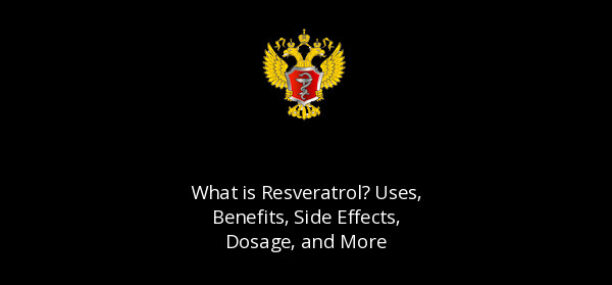What is Resveratrol
Resveratrol is a natural compound that is found in various plants, including grapes, berries, and peanuts. It has been shown to have a wide range of health benefits, including anti-aging, anti-inflammatory, and antioxidant properties. Here are some of the active compounds found in resveratrol:
- Polyphenols: Resveratrol is a type of polyphenol, which is a group of natural compounds that are known for their antioxidant properties.
- Trans-resveratrol: This is the most bioactive form of resveratrol, which means that it is the form that is most easily absorbed by the body and has the greatest health benefits.
- Quercetin: Quercetin is another antioxidant compound that is found in many fruits and vegetables, including grapes and berries.
- Kaempferol: Kaempferol is a flavonoid that is found in many plant-based foods, including grapes, broccoli, and tea.
Conditions that can be improved by Resveratrol supplementation include:
- Cardiovascular disease: Resveratrol has been shown to have a positive effect on heart health, including reducing blood pressure, improving cholesterol levels, and reducing the risk of blood clots.
- Neurodegenerative diseases: Resveratrol has been shown to have neuroprotective properties and may help to prevent or slow the progression of neurodegenerative diseases such as Alzheimer’s and Parkinson’s disease.
- Cancer: Resveratrol has been shown to have anti-cancer properties and may help to prevent the development of certain types of cancer.
- Diabetes: Resveratrol has been shown to have a positive effect on blood sugar levels and insulin sensitivity, making it potentially beneficial for people with type 2 diabetes.
Clinical trials have been conducted to test the effectiveness of Resveratrol in various therapies. Here are a few examples:
- A study published in the journal Cell Metabolism found that resveratrol supplementation improved glucose control and insulin sensitivity in overweight and obese adults.
- A study published in the journal Nutrition and Cancer found that resveratrol supplementation reduced the risk of colon cancer in patients with a history of colorectal adenoma.
- A study published in the journal Neurology found that resveratrol supplementation improved cognitive function in patients with mild to moderate Alzheimer’s disease.
Resveratrol is a promising natural compound that has been shown to have numerous health benefits, including anti-aging, anti-inflammatory, and antioxidant properties. While further research is needed to fully understand its potential benefits, Resveratrol supplementation may offer a safe and effective way to improve overall health and well-being.
The optimal dose of Resveratrol used in clinical trials varies depending on the condition being studied. For general health benefits, doses ranging from 150-500mg per day have been used in clinical trials. However, for specific conditions such as type 2 diabetes, higher doses of up to 2g per day have been used.
The optimal dose of resveratrol used in clinical trials can vary depending on the specific study and the condition being treated. However, most studies have used doses ranging from 250 to 2000 milligrams per day.
The optimal dosing for various conditions are as follows:
- For general health: 150-500mg per day.
- For anti-aging and longevity: 250-500 milligrams of resveratrol per day.
- For cardiovascular health: 250-1000mg per day.
- For metabolic health: 500-2000 milligrams of resveratrol per day.
- For type 2 diabetes: up to 2g per day.
- For neurodegenerative disorders: up to 1g per day.
- For cognitive function and Alzheimer’s disease: 200-1000 milligrams of resveratrol per day.
- For cancer prevention and treatment: up to 5g per day.
It is important to note that these dosages may not be appropriate for everyone and should be discussed with a healthcare provider before starting any supplement regimen. Additionally, the quality and purity of the supplement can also affect its efficacy, so it is important to choose a reputable brand.
Verified by: Dr.Diab (April 5, 2024)
Citation: Dr.Diab. (April 5, 2024). What is Resveratrol? Uses, Benefits, Side Effects, Dosage, and More. Medcoi Journal of Medicine, 6(2). urn:medcoi:article21701.












There are no comments yet
Or use one of these social networks